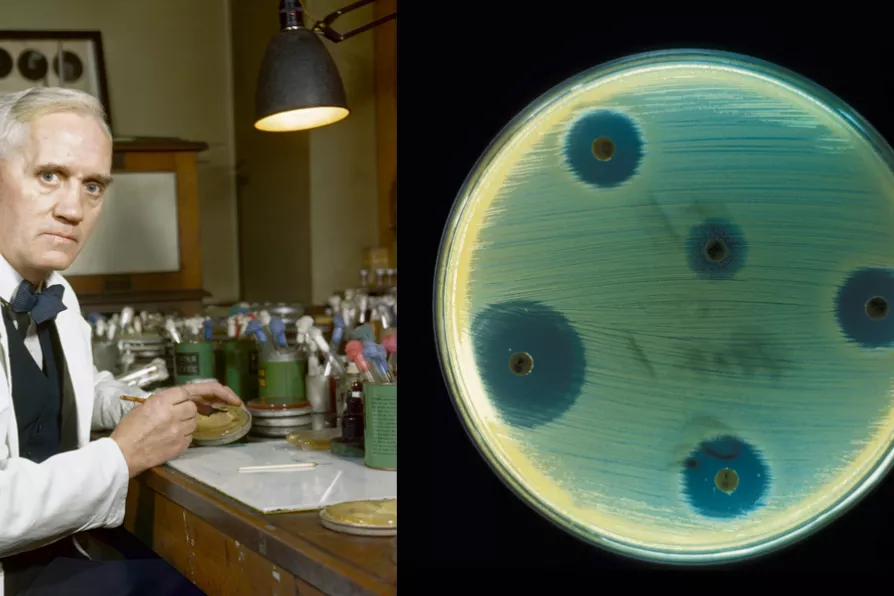As tens of thousands return to the streets for the first national Palestine march of 2026, this movement refuses to be sidelined or silenced, says PETER LEARY

 IN THE BEGINNING: Alexander Fleming, in his laboratory at St Mary’s, Paddington, London and (right) An antibiotics test plate for a non-resistant bacterial species – bacteria can grow all over the plate, except in the circles around the antibiotics
[Pic of antibiotic: CDC/Provider: Don Stalons]
IN THE BEGINNING: Alexander Fleming, in his laboratory at St Mary’s, Paddington, London and (right) An antibiotics test plate for a non-resistant bacterial species – bacteria can grow all over the plate, except in the circles around the antibiotics
[Pic of antibiotic: CDC/Provider: Don Stalons]
BACTERIA are everywhere on the Earth, including inside our own bodies. While most of these bacteria are harmless, sometimes they can cause life-threatening infections.
Before the 20th century, these infections would often be fatal. However, one of the greatest success stories of modern medicine has been the discovery of antibiotics: chemicals which act to kill bacteria.
Thinking about antibiotics in terms of a “war” between humans and bacteria is a mistake. Many bacteria naturally produce antibiotics to reduce numbers of other bacterial species. These antibiotics are usually in very low concentrations in the environment, but if they can be successfully synthesised they can be used as medicine to stop bacterial overgrowths, preventing deaths from such infections.

New research into mutations in sperm helps us better understand why they occur, while debunking a few myths in the process, write ROX MIDDLETON, LIAM SHAW and MIRIAM GAUNTLETT

Politicians who continue to welcome contracts with US companies without considering the risks and consequences of total dependency in the years to come are undermining the raison d’etre of the NHS, argues Dr JOHN PUNTIS

A maverick’s self-inflicted snake bites could unlock breakthrough treatments – but they also reveal deeper tensions between noble scientific curiosity and cold corporate callousness, write ROX MIDDLETON, LIAM SHAW and MIRIAM GAUNTLETT











